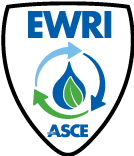Introduction
We are living through a pivotal era in civil and environmental engineering, where data is becoming as fundamental as concrete and pipe networks. In water engineering, the proliferation of sensors, cloud infrastructure, and high-performance computing now make it possible to tackle complexities previously out of reach. Recognizing this moment of convergence, EWRI approved the establishment of the Task Committee on Machine Learning and Artificial Intelligence in Water Engineering at the end of 2024, with the goal of fostering the integration of ML/AI into research and practice across water systems.
Our vision is that AI should not be an exotic add-on, but rather an integral, trusted tool in the water engineer’s toolkit—helping to interpret data, augment modeling, guide operations, and strengthen resilience.
Committee Formation and Vision
The Task Committee assembles leading experts from academia, practice, government, and industry to collectively promote AI-enabled water engineering. Key dimensions of our scope include:
- Water Quality & Treatment
- Hydraulics & Hydraulic Infrastructure
- Water Resources Systems & Planning
- Integrated Water Systems (e.g. urban water networks, distribution, reuse, stormwater)
We are committed to (1) catalyzing cross-disciplinary collaboration, (2) guiding responsible use of AI (interpretability, generalization, robustness), (3) advancing educational offerings, and (4) disseminating high-quality work.
For more information or to join the committee, please reach out to Dr. Jie Zhang at [email protected] or visit ai4water.github.io. We look forward to collaborating broadly across our community to shape a future where AI empowers sustainable, resilient water engineering.
Recent Activities
Since our formation, the Task Committee has made significant strides. Below are major initiatives and accomplishments:
1. Special Collection: Machine Learning & AI in Water Treatment
This collection in ASCE Journal of Environmental Engineering invites contributions that merge mechanistic treatment modeling with data-driven tools. Topics include process optimization, digital twins for treatment plants, sensor integration, and predictive control. Call for Papers: https://ascelibrary.org/joeedu/cfp-machine-learning-ai-water-treatment
2. Special Collection: ML & AI Research in Hydraulics
To complement the water quality side, the committee launched this collection in ASCE Journal of Hydraulic Engineering, targeting flow modeling, sediment transport, flood forecasting, and hybrid physics–ML methods. Call for Papers: https://ascelibrary.org/jhend8/cfp-machine-learning-ai-research-hydraulic
3. Special Collection: Machine Learning & AI in Water Distribution Systems
Our newest initiative is a special collection in Journal of Water Resources Management (JWRM) on the role of ML/AI in integrated water systems. This collection emphasizes methodological innovation and real-world deployment in water supply networks, distribution systems, reuse and recycling, optimization under uncertainty, and cyber-physical system integration. Call for Papers: https://ascelibrary.org/jwrmd5/cfp-machine-learning-ai-water-systems
By launching this third collection, the committee is deliberately expanding its purview from “treatment + hydraulics” to the full systems level—bridging domains and encouraging holistic, end-to-end solutions.
4. Community Outreach & Capacity Building
Beyond publications, we’ve been quite active in community engagement:
- Sessions and mini-workshops at EWRI Congress and other conferences, where practitioners and researchers present case studies on ML/AI applications in water.
- Webinars and panel events to help practitioners build competency in ML tools, workflows, and best practices.
- A developing resource repository, which will host datasets, open-source model code, benchmark tasks, and educational materials accessible to EWRI members and the broader community.
Strategic Insights & Emerging Themes
From reviewing early submissions and engaging with the community, several trends and challenges are surfacing:
- Hybrid modeling (physics + data) is gaining traction: Pure black-box models are often limited by interpretability and extrapolation risk; hybrid methods that embed physical insight within ML architectures are promising directions.
- Generalization and transfer learning remain key hurdles: Models trained in one region or facility often struggle to transfer to another without careful retraining or adaptation.
- Explainability and trust are essential for practitioner adoption: Tools that provide uncertainty quantification, feature importance explanations, or committee/disagreement metrics can help.
- Data quality and infrastructure gaps persist: Many utility datasets remain fragmented, noisy, or inadequately labeled. Supporting data collection and curation is critical.
- Cyber-physical integration and real-time deployment are nascent frontiers: Especially in the JWRM context, integrating real-time sensor data, feedback control, and ML-based decision making is an active research space.
Looking Ahead
As we move forward, the Task Committee plans to:
- Launch benchmark challenges or data competitions tied to hydraulics, treatment, or system domains to crowdsource innovation.
- Encourage multi-institutional collaborations that pair utilities and researchers in co-designing AI tools.
- Develop short courses or modular training (online and in-person) targeted at practicing water engineers who wish to adopt ML/AI workflows.
- Facilitate standards and best practices guidelines around data governance, model validation, reproducibility, and code sharing in water engineering.
- Explore joint topics across the three special collections—for example, hybrid models spanning hydraulics, treatment, and system interactions.
- Ultimately, our ambition is to make AI a well-accepted, robust companion in water engineering—reducing operational risk, improving resilience, and enabling smarter decision support.
Call to the Community
If you are engaged in or interested in ML/AI for water engineering—whether in research, utilities, consulting, or product development—we welcome your involvement. You can contribute by:
- Submitting manuscripts to any of our three special collections
- Serving as a reviewer for any of our three special collections (Please contact the lead guest editor of each special collection)
- Proposing session ideas, workshops, or tutorials for upcoming EWRI events
- Sharing datasets, code, or case studies via our resource repository
- Participating on subcommittees or task groups within the ML/AI Task Committee


